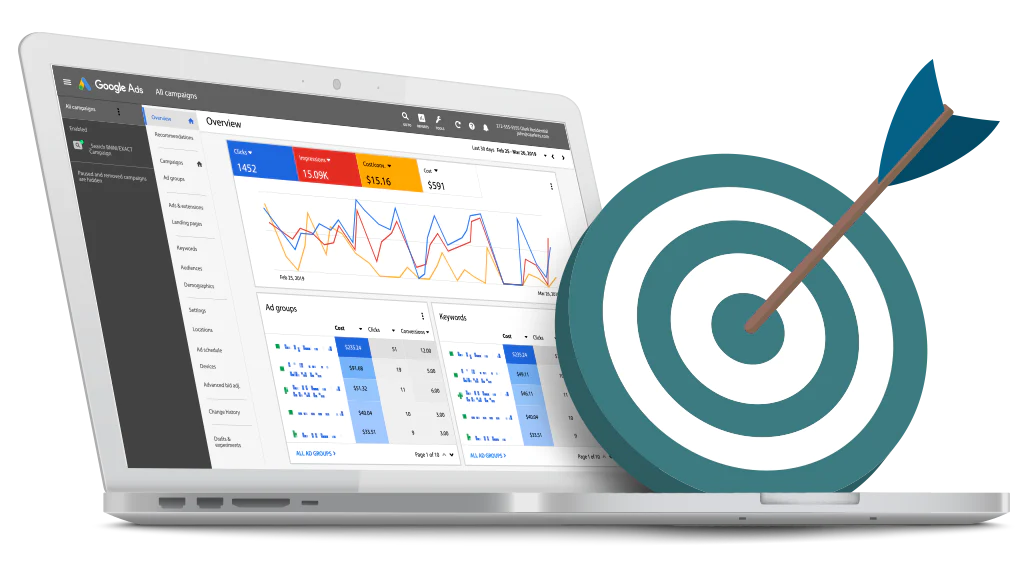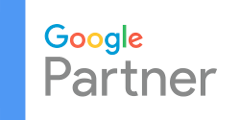Master Online Marketing with Our Pay Per Click (PPC) Service
In today's competitive digital landscape, effectively reaching and engaging your target audience is essential for business success. With our Pay Per Click (PPC) Service, we offer a comprehensive solution to boost your online presence, reach potential customers at the right moment, and maximize return on investment in digital advertising.

Targeted Reach
We provide precise targeting to ensure your ads reach the right audience, at the right time, and in the right place, maximizing their effectiveness.
Financial Control
With our service, you only pay when users interact with your ads, giving you complete control over your budget and ensuring that every dollar is spent efficiently.

Our Comprehensive PPC Features
PPC Mastery Suite: Elevating Your Advertising Game
Our advanced PPC solutions encompass a range of essential features designed to elevate your advertising efforts. From customized strategy development tailored to your business's unique needs to meticulous advanced keyword research ensuring targeted traffic influx, our services prioritize maximizing your campaign's efficiency. Compelling ad creation aims to captivate audiences, while continuous optimization guarantees sustained performance through constant monitoring and adjustments. Detailed reporting rounds off our offerings, providing transparent insights into campaign progress and ROI, empowering informed decision-making for your marketing endeavors.
Transparency and
Communication
We prioritize clear and transparent communication throughout our partnership, ensuring you're kept informed at every stage of your PPC campaign. Our dedicated team is committed to maintaining open lines of communication, providing you with regular updates and insights into the progress of your campaigns.
ROI Focus
With a steadfast focus on delivering tangible results, our goal is to maximize the return on investment (ROI) for your PPC campaigns. Through strategic planning, continuous optimization, and data-driven decision-making, we strive to ensure that every dollar spent on advertising generates measurable and impactful outcomes for your business.
Invest in Your Online Marketing Success Today

Frequently Asked Questions (FAQs)
Paid search ads are advertisements that appear on search engine results pages (SERPs) when users search for specific keywords. Advertisers bid on keywords, and their ads are displayed above or alongside the organic search results. They are also known as pay-per-click (PPC) ads because advertisers pay each time someone clicks on their ad.
Paid search ads work through an auction system. Advertisers select keywords relevant to their products or services and create ads for those keywords. When users search for those keywords, the search engine runs an auction to determine which ads to display. The auction considers factors like bid amount, ad relevance, and quality score. Advertisers only pay when users click on their ads.
Quality Score is a metric used by search engines like Google to measure the relevance and quality of your ads, keywords, and landing pages. A higher Quality Score can lead to lower costs per click (CPC) and better ad positions. It is influenced by factors such as:
- Expected click-through rate (CTR): The likelihood that users will click on your ad.
- Ad relevance: How closely your ad matches the intent of the user's search.
- Landing page experience: The quality and relevance of the page users land on after clicking your ad.
PPC (Pay-Per-Click) is a model of internet advertising where advertisers pay a fee each time their ad is clicked. CPC (Cost-Per-Click) is the actual amount paid for each click in a PPC campaign. While PPC is the advertising method, CPC is a pricing metric within that method.
Choosing the right keywords involves:
- Keyword research: Using tools like Google Keyword Planner to find relevant keywords with good search volume and low competition.
- Competitor analysis: Identifying the keywords your competitors are targeting.
- Long-tail keywords: Focusing on longer, more specific phrases that are less competitive but more targeted.
- Relevance: Ensuring the keywords you choose are directly related to your products or services.
A negative keyword is a term that you specify to prevent your ads from showing up for irrelevant searches. For example, if you sell luxury watches, you might use "cheap" as a negative keyword to avoid attracting users looking for low-cost options. This helps improve the relevance of your ads and reduces wasted spend on clicks that are unlikely to convert.
The cost of running a paid search ad campaign can vary widely depending on factors like industry competition, keyword choice, and budget. Advertisers set a daily or monthly budget, and the cost per click (CPC) can range from a few cents to several dollars. It's important to monitor and adjust your budget based on campaign performance and goals.
Ad extensions are additional pieces of information that expand your ads and provide users with more reasons to click. Common ad extensions include:
- Sitelink extensions: Links to specific pages on your website.
- Call extensions: Your business phone number.
- Location extensions: Your business address and map.
- Callout extensions: Additional text highlighting features or benefits.
- Structured snippets: Information about specific aspects of your products or services.
Benefits include increased visibility, improved click-through rates, and enhanced ad relevance.
To improve your ad's CTR:
- Write compelling ad copy: Create clear, concise, and engaging headlines and descriptions.
- Use relevant keywords: Ensure your ad targets the right keywords for your audience.
- Utilize ad extensions: Provide additional information and links to boost appeal.
- Test different versions: Use A/B testing to compare different ad variations.
- Match user intent: Align your ad content with the searcher's intent to increase relevance.
Remarketing (or retargeting) is a strategy that involves showing ads to users who have previously visited your website but did not convert. By using cookies to track visitors, you can create targeted ads to re-engage these users and encourage them to return and complete a desired action. Remarketing can improve conversion rates by keeping your brand top of mind.
Search ads appear on search engine results pages (SERPs) when users search for specific keywords. They are text-based and highly targeted based on user intent. Display ads, on the other hand, are visual banner ads that appear on websites within the Google Display Network or other ad networks. They are typically used for brand awareness and can reach a broader audience.
Send us a message
Contact us today using this form and our support team will reach out as soon as possible.


